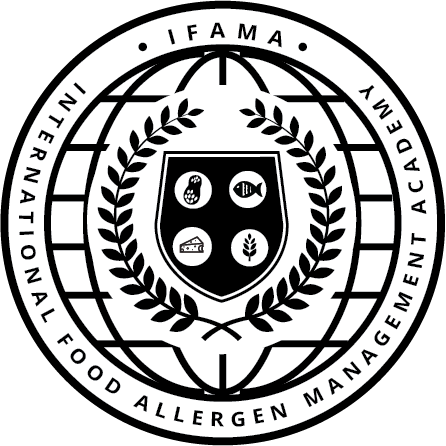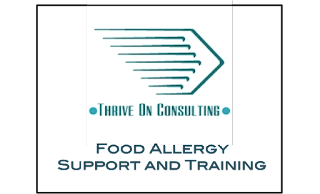After seeing how many people engaged after a recent social media post on food allergies in the legal system, I thought I'd take a moment to provide some further education. I will say our AllerCoach (TM) program has an entire section on this. It is my least favorite section to teach, because let's face it, I'm not a lawyer. It's hard to explain how the legal system works, when that's not my profession. I've had to understand it more as a business owner and as a community advocate, however. So as you read this keep in mind, this is just from my personal experience and time on this earth.
A few things to keep in mind:
1. There are existing laws related to the safety of those with food allergies.
2. If you want to understand how laws work, first you need to know that every state, county and city have different policies. Just because something is a federal law, doesn't mean it's enforced at the local level. Where do we see this most clearly today? Marijuana laws, of course.
3. If you want to change the law or create a new law, I cannot expresses the importance of being involved with your LOCAL political system, because this is where we, as individuals, can make THE BIGGEST impact.
4. Modifying an existing law seems much easier than creating a brand new law. When I am talking to city council members, policy makers and so on, they all like to have a good example of where it's been done before and then write or adopt a law based on what's already existing.
Existing Laws
United States Federal Laws:
The 2009 food code revision lists in section 2-102.11 that food establishments must have a manager/owner during all hours of operation onsite that have been trained in food allergens, cross contaminations, and symptoms of allergic reactions. They must also train all staff members in their specific duties about allergens.
This law only applies to states that have adopted the 2009 food code, in establishments that serve the public directly. Most health department inspectors aren't enforcing this law and many establishments are not even aware that this exist. Although the National Restaurant Association has put up a specific Allergy Training program available through ServSafe and many other businesses have been created to train restaurants specifically.
FALCPA has been in place since 2004 and requires that 8 allergens be listed in plain English on packaged food goods that are distributed across state lines. What does this mean for food allergic individuals? Locally produced products may not be required to list major allergens or all ingredients on packaging. Also if you have food allergies outside of diary, eggs, soy, peanuts, tree nuts, fin fish, shellfish or
State Specific Laws: Massachusetts, Maryland, Michigan, Rhode Island, Virginia, Illinois all have specific laws pertaining to food allergic diners in restaurants. Most of them are about the same. They require restaurants to ask guests if they have food allergies, to keep posters in the kitchen on top 8 food allergens, and have at least one person trained on food allergies.
Georgia has a law that allows any entity serving food to carry epinephrine at their establishment and releasing any liability the establishment may have if they have to administer the life saving medication in case of an allergic reaction.
City Specific Laws: New York City and St. Paul are two cities that created laws relating to food allergy awareness in restaurants specifically some time ago. It was more adding the phrase, "if you have food allergies, please inform a server." to a menu and keeping a poster on the top 8 allergens available and visible to staff members in the kitchen.
 Ongoing training, awareness, frequent food allergy drills with staff, and having food allergy safety specific tools are the the way help keep food allergic diners safe. While not all food allergic reactions are fatal, in any moment, without notice, they could become fatal. The CDC reports that every 3 seconds someone is sent to the hospital for an allergic reaction. Not all allergic reactions go reported, however. Allergic reactions do have levels. Anaphylaxis is the worst- which is a whole body response. I've had reactions that I just manage but it's uncomfortable and painful. Hives and sour stomach are nothing compared to the long term damage it does to our immune systems.
Ongoing training, awareness, frequent food allergy drills with staff, and having food allergy safety specific tools are the the way help keep food allergic diners safe. While not all food allergic reactions are fatal, in any moment, without notice, they could become fatal. The CDC reports that every 3 seconds someone is sent to the hospital for an allergic reaction. Not all allergic reactions go reported, however. Allergic reactions do have levels. Anaphylaxis is the worst- which is a whole body response. I've had reactions that I just manage but it's uncomfortable and painful. Hives and sour stomach are nothing compared to the long term damage it does to our immune systems.
It's just as much our responsibility as food allergic diners to take accountability though. We have to inform staff (no matter what) that we have food allergies. Even if you think it's impossible. I always carry a food allergy card- that lists all my food allergies and that I carry an epinephrine pen. This should be just as much of a law as making food service professionals take a training. We need to be partners in food allergen management.
If you are interested in changing the laws in your state, I suggest first talking with your state's restaurant association about at least adopting the 2009 or newer federal food code- if they have not done so already. It's easier to adopt something already in place then having to create something from scratch, and there are other benefits to the state in doing so, usually. FARE also has a guide, https://www.foodallergy.org/sites/default/files/2017-08/Restaurant-Toolkit.pdf
On the advocacy and impact side, explaining to local groups in food service management the importance of food allergy education and asking them to update their policies, is almost as important if not more than changing a law. Just because there is law on the books, doesn't mean it will be enforced or even enforced properly. A restaurant receiving a fine or a lawsuit because they killed someone or made someone sick, is not enough. Any establishment responsible for serving food to people should be trained because it's the responsible thing to do. There is a nice way to go about this. It's also more than just kids. Adult onset food allergies also exist. Anyone of their workers is subject to developing an allergy- latex, food or other environmental allergens, and that could impact their ability to work.
For more information on taking a course in food allergen management please contact us.
FARE
FAACT




























